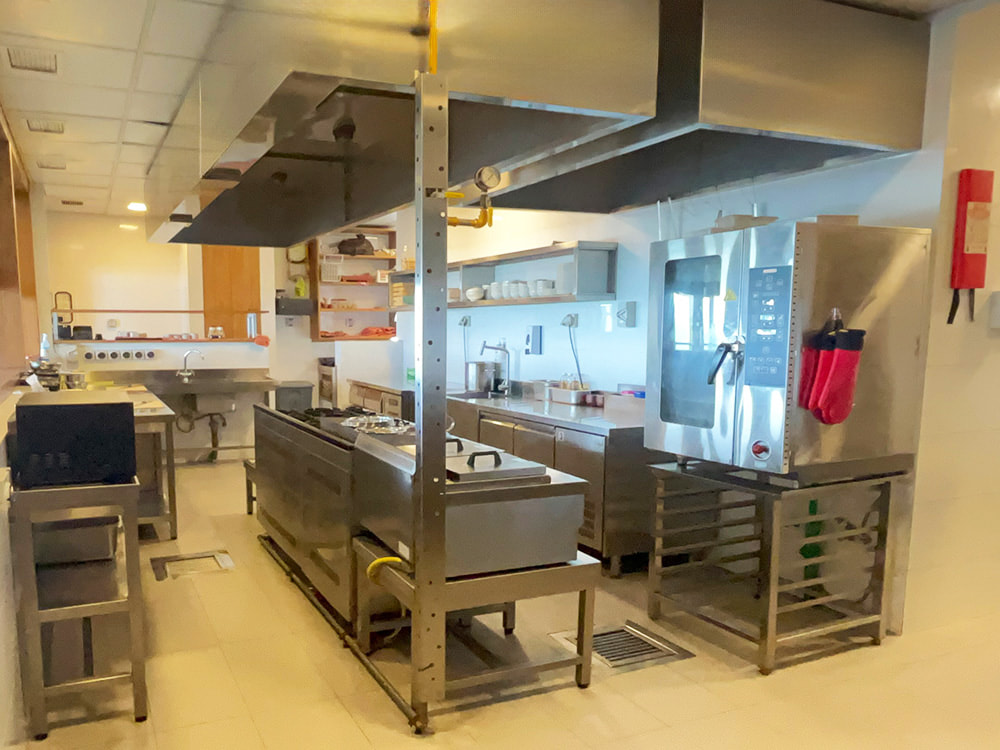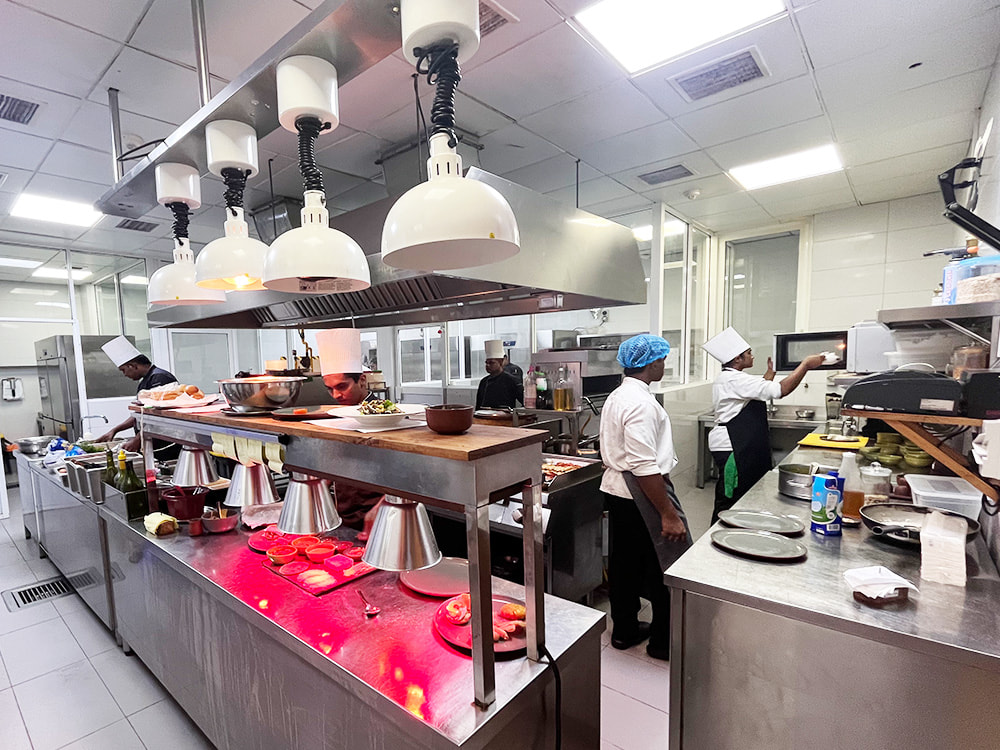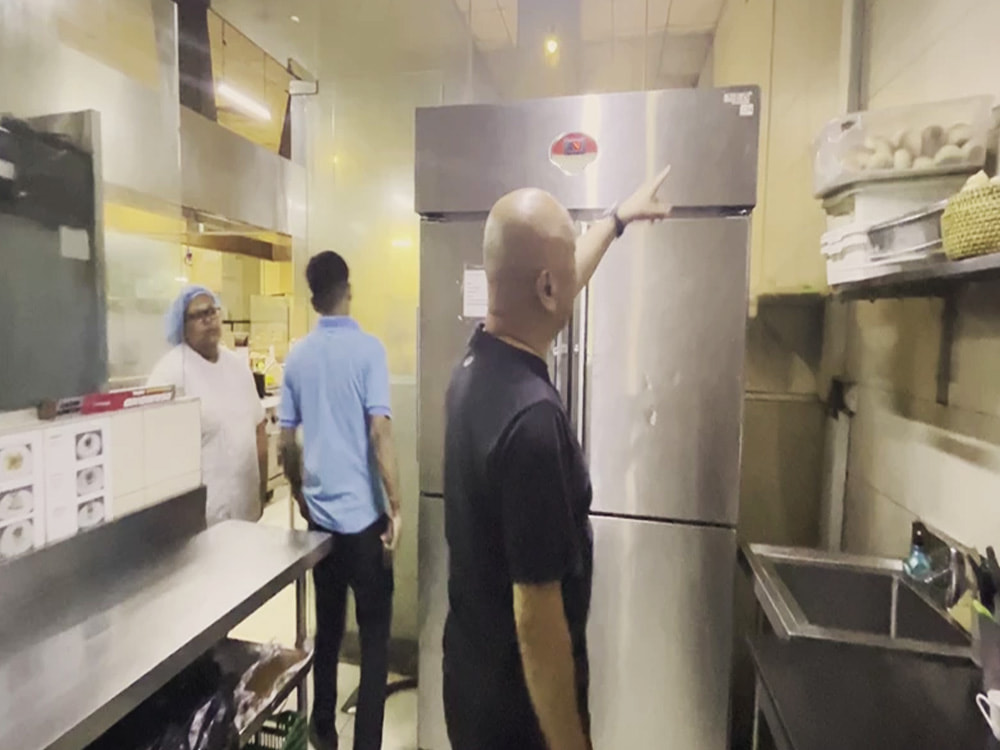10 Oct 2024
In order to provide excellent culinary creations for hotel, besides the skills of the chefs and the selection of ingredients, having good kitchen equipment is essential. In this article, we will provide a classification and purchasing checklist for stainless steel kitchen equipment in hotels.
Stainless steel is the most commonly used material for commercial kitchen equipment. It not only has durability and environmental friendliness, but also provides a clean and aesthetic appearance, transforming the visual environment of the kitchen.
However, there are various types of stainless steel, and the quality varies greatly. As commercial kitchen equipment involves food safety, it is crucial to ensure the quality of stainless steel used.We will discuss why stainless steel is the preferred material for commercial kitchen equipment and how to select the right stainless steel products. We will also explore the advantages of commercial stainless steel kitchen equipment and its different categories. Additionally, we will provide guidelines on how to properly use and maintain commercial stainless steel kitchen equipment.
By the end of this article, readers will have a comprehensive understanding of the importance of stainless steel in hotel and kitchen equipment, as well as the necessary knowledge to make informed decisions when purchasing stainless steel products for their establishments.

Stainless steel plays a crucial role in the hotel and kitchen equipment industry due to its numerous benefits and qualities. It is a preferred material for commercial kitchen equipment and utensils for several reasons.
Firstly, stainless steel is highly durable and resistant to corrosion, making it ideal for use in a demanding environment like a commercial kitchen. It can withstand high temperatures, moisture, and frequent use without deteriorating or losing its structural integrity. This durability ensures that the equipment lasts longer, reducing the need for frequent replacements and saving costs for businesses.
Secondly, stainless steel is hygienic and easy to clean. Its smooth surface prevents the accumulation of dirt, bacteria, and other contaminants, making it suitable for food preparation and storage. The material is non-porous, preventing the absorption of odors, flavors, and stains from food, ensuring the integrity and quality of the dishes prepared.
Furthermore, stainless steel is aesthetically pleasing and enhances the overall appearance of a hotel or restaurant kitchen. Its sleek and modern design adds a touch of sophistication and professionalism to the environment, creating a positive impression on customers.
Moreover, stainless steel is a sustainable and eco-friendly choice for kitchen equipment. It is recyclable, reducing waste and environmental impact. The material is also non-toxic and does not release harmful chemicals or substances into the food, ensuring the safety of customers.
In conclusion, the importance of stainless steel in hotel and kitchen equipment cannot be overstated. Its durability, hygiene, aesthetic appeal, and sustainability make it the preferred choice for commercial kitchen equipment. By investing in high-quality stainless steel products, hotels and restaurants can enhance their operations, improve food safety, and create a positive dining experience for their customers.
When it comes to purchasing stainless steel kitchen equipment for hotels, it is important to consider the different categories and have a checklist to ensure the right products are selected. Here are some categories and factors to consider when purchasing stainless steel kitchen equipment:
Cooking Equipment: This category includes stoves, ovens, grills, and fryers. Consider the size and capacity of the equipment based on the hotel's cooking needs.
Food Preparation Equipment: This category includes worktables, cutting boards, and food processors. Look for durable and easy-to-clean equipment that can withstand heavy usage.
Refrigeration Equipment: This category includes refrigerators, freezers, and ice makers. Consider the size and energy efficiency of the equipment to meet the hotel's storage needs.
Dishwashing Equipment: This category includes dishwashers and sinks. Look for equipment that is efficient, easy to operate, and can handle the hotel's dishwashing volume.
Storage and Shelving: This category includes stainless steel shelves, cabinets, and racks. Consider the storage space needed for ingredients, utensils, and other kitchen supplies.
When purchasing stainless steel kitchen equipment, it is important to have a checklist to ensure the products meet the necessary criteria. Consider the following factors:
Material Quality: Choose equipment made from high-quality stainless steel that is resistant to corrosion, heat, and wear.
Safety Standards: Ensure the equipment meets safety standards and regulations to protect both staff and customers.
Warranty and After-Sales Service: Look for equipment with a warranty and reliable after-sales service to address any issues that may arise.
Price and Budget: Consider the budget and compare prices from different suppliers to find the best value for money.
User-Friendliness: Choose equipment that is easy to operate, clean, and maintain to increase efficiency in the kitchen.
By considering the different categories and factors when purchasing stainless steel kitchen equipment, hotels can ensure they have the right tools to provide high-quality cuisine and enhance their business operations.

Durability Kitchen Equipment You Can Count On for Your Hotel!
Commercial stainless steel kitchen equipment offers several advantages that make it the preferred choice for restaurants and hotels. Here are some of the key benefits:
Durability: Stainless steel is known for its strength and durability. It can withstand high temperatures, heavy use, and constant cleaning without warping or corroding. This ensures that the kitchen equipment will last for a long time, even in the demanding commercial environment.
Hygiene: Stainless steel is a non-porous material, which means it does not harbor bacteria or mold. It is easy to clean and sanitize, making it ideal for food preparation areas. The smooth surface of stainless steel also prevents food particles and liquids from sticking, reducing the risk of cross-contamination.
Resistance to corrosion: Stainless steel is highly resistant to corrosion, making it suitable for use in humid and high-temperature environments. It does not rust or stain, ensuring that the kitchen equipment remains in good condition and maintains its aesthetic appeal.
Easy maintenance: Stainless steel is low maintenance and easy to clean. It can be wiped down with a damp cloth or cleaned with mild detergent and water. Unlike other materials, stainless steel does not require special cleaning agents or treatments to maintain its appearance.
Aesthetics: Commercial stainless steel kitchen equipment has a sleek and modern appearance that enhances the overall look of the kitchen. It is available in various finishes, including brushed, polished, and matte, allowing businesses to choose the style that best suits their design preferences.
Sustainability: Stainless steel is a sustainable material that is 100% recyclable. It is also resistant to chemicals and does not release harmful substances into the environment. Choosing stainless steel kitchen equipment contributes to a greener and more eco-friendly operation.
Overall, commercial stainless steel kitchen equipment offers durability, hygiene, easy maintenance, and a modern aesthetic. Its resistance to corrosion and sustainability make it a reliable and environmentally-friendly choice for businesses in the foodservice industry.
Commercial stainless steel kitchen equipment can be classified into several categories based on their specific functions and uses. These categories include:
Cooking Equipment: This category includes various types of stoves, ovens, grills, fryers, and steamers. These equipment are essential for cooking and preparing a wide range of dishes in a commercial kitchen.
Food Preparation Equipment: Food preparation equipment includes work tables, cutting boards, food processors, mixers, and slicers. These tools are used for chopping, slicing, mixing, and preparing ingredients before cooking.
Refrigeration Equipment: such as refrigerators, freezers, and ice machines, and cold rooms,are crucial for storing and preserving perishable food items. These appliances help maintain the freshness and quality of ingredients.
Dishwashing Equipment: including commercial dishwashers and sinks, are used for cleaning and sanitizing dishes, utensils, and other kitchenware. These appliances ensure proper hygiene and sanitation in a commercial kitchen.
Storage Equipment: Storage equipment, such as shelving units, racks, and cabinets, are used to organize and store ingredients, utensils, and other kitchen supplies. These equipment help maximize space and improve efficiency in a commercial kitchen.
Ventilation Equipment: such as exhaust hoods and fans, are essential for removing smoke, odors, and heat from the kitchen. These appliances help maintain a comfortable and safe working environment for kitchen staff.
Serving Equipment: Serving equipment includes buffet tables, food warmers, and serving carts. These equipment are used to present and serve food to customers in a restaurant or hotel setting.
Each category of commercial stainless steel kitchen equipment plays a vital role in the smooth operation and efficiency of a commercial kitchen. When purchasing these products, it is important to consider factors such as quality, durability, and compliance with food safety standards. By selecting the right equipment for each category, businesses can ensure the success and effectiveness of their kitchen operations.

Trusted for Ten Years-The Ultimate Hotel Equipment
Here are some tips to help you make the right choice:
Quality: Look for stainless steel products that are made from high-quality materials. Check the grade of stainless steel used, as this will determine its durability and resistance to corrosion. Higher grades, such as 304 and 316, are commonly used in commercial kitchens due to their superior corrosion resistance.
Functionality: Consider the specific needs of your kitchen and choose equipment that meets those requirements. Look for features such as temperature control, adjustable shelves, and easy-to-clean surfaces. It's also important to ensure that the equipment is designed for commercial use and can withstand the demands of a busy kitchen environment.
Safety: Ensure that the equipment meets all relevant safety standards and regulations. Look for certifications or labels that indicate compliance with industry standards. This is especially important when it comes to equipment that involves heating elements or gas connections.
Ease of Maintenance and Aftersales Services: Commercial kitchens require regular cleaning and maintenance. Choose equipment that is easy to clean and maintain, with smooth surfaces and removable parts. This will help to ensure proper hygiene and extend the lifespan of the equipment.
Budget: Consider your budget and choose equipment that offers the best value for money. While it's important to invest in high-quality equipment, it's also important to find a balance between cost and quality. Compare prices from different suppliers and consider factors such as warranty and after-sales service.
By considering these factors and tips, you can select the right commercial stainless steel kitchen equipment that meets your needs, ensures food safety, and enhances the efficiency of your kitchen operations. Remember to choose reputable suppliers and brands that have a proven track record in the F&B industry.
Here are some tips on how to properly use commercial stainless steel kitchen equipment:
Follow the manufacturer's instructions: Each piece of equipment may have specific guidelines for usage, cleaning, and maintenance. It is crucial to read and follow these instructions carefully to avoid any damage or malfunction.
Use appropriate utensils: When using stainless steel cookware or utensils, it is important to use non-abrasive tools such as silicone or wooden utensils to prevent scratching the surface. Avoid using metal utensils that can cause damage.
Proper cleaning: After each use, thoroughly clean the stainless steel equipment with warm soapy water and a non-abrasive sponge or cloth. Avoid using harsh chemicals or abrasive cleaners that can damage the surface. Rinse and dry the equipment thoroughly to prevent water spots or rust.
Regular maintenance: Regularly inspect the equipment for any signs of wear or damage. Replace any worn-out parts or components to ensure optimal performance and safety.
Temperature control: When using stainless steel cookware, be mindful of the temperature to prevent overheating or burning. Stainless steel has excellent heat conductivity, so it is essential to monitor and adjust the heat accordingly.
Avoid acidic or corrosive substances: Stainless steel is resistant to corrosion, but prolonged exposure to acidic or corrosive substances can still cause damage. Avoid using harsh chemicals or leaving acidic foods in contact with the equipment for extended periods.
By following these guidelines, you can ensure the proper and safe use of commercial stainless steel kitchen equipment. Proper usage and maintenance will not only extend the lifespan of the equipment but also contribute to the overall efficiency and hygiene of your kitchen operations.
Keywords: Kitchen and Hotel Equipment
Originally published 10 Oct 2024, updated 10 Oct 2024.
Get a Project Quote
Our representative will contact you soon